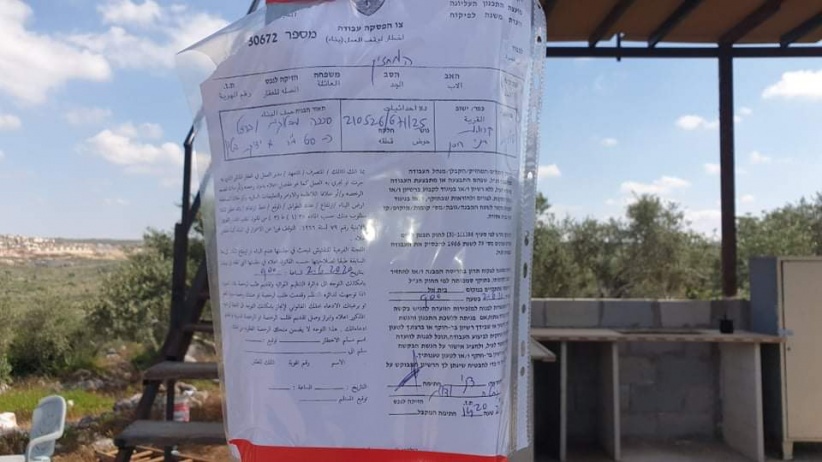JERICHO, Wednesday, May 20, 2020 (WAFA) – Israeli forces today ordered a halt on the construction of two mobile homes in al-Auja town, located to the north of Jericho city, said local sources.
Sources confirmed that Israeli forces handed Ali Rashayda a military notice, ordering him to evict his two mobile homes and stop their construction.
Horizontally located 10 kilometers to the north of Jercho, al-Auja has a population of some 5,470 and occupies a total area of some 107,000 dunums.
Under the Oslo Accords, an agreement made 25 years ago that was supposed to last just five years towards a self-governing country alongside Israel, the Palestinian Authority was given control over a small pocket of land classified as Area A, which occupies 16,519 dunams and accounts for 15.5 percent of the village’s total area. In contrast, Israel maintains control over the remainder, classified as Area C.
Israel has severely restricted Palestinian access to water in the area, particularly that local water springs, including ‘Ein al-Auja (al-Auja spring), are located within Area C. Local water springs are susceptible to dryness as a result of Israel’s control over water. Israel have set up huge wells over the local hot water basins, reducing the quantity of water flowing from the spring and causing destruction to thousands of dunums of agricultural land irrigated by the water spring.
Israel has seized at least 2,257dunams belonging to the village for the construction of four nearby colonial settlements, 2,152 dunums for the construction of a military base, besides to more land for opening settler-only by-pass roads, pushing the villagers into a crowded enclave, a ghetto, surrounded by walls, settlements and military installations.
Israel demolishes Palestinian houses and structures almost on a daily basis as a means to achieve “demographic control” of the occupied territories.
Israel denies planning permits for Palestinians to build on their own land or to extend existing houses to accommodate natural growth, particularly in Jerusalem and Area C, which constitutes 60 percent of the occupied West Bank and falls under full Israeli military rule, forcing residents to build without obtaining rarely-granted permits to provide shelters for their families.
In contrast, Israel argues that building within existing colonial settlements is necessary to accommodate the “natural growth” of settlers. Therefore, it much more easily gives the estimated 550,000 Jewish Israeli settlers there building permits and provides them with roads, electricity, water and sewage systems that remain inaccessible to many neighboring Palestinians.
K.F.











